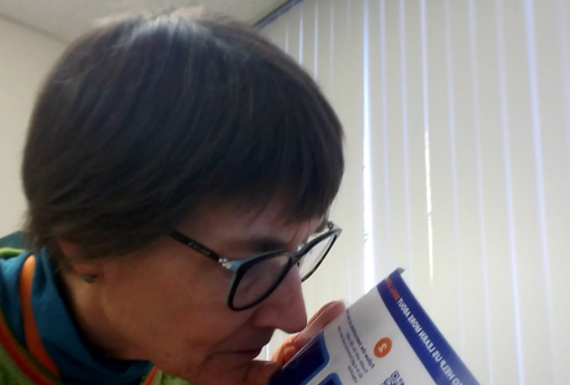USA TODAY – Elizabeth Byland has trouble stomaching chicken these days, because it smells to her like poop. Cauliflower tastes like metal and carrots like soap.
“I’ve got a dog that smells like orange slices,” she said.
It’s an improvement from last summer when the Richmond, Virginia, resident caught COVID-19 and couldn’t smell or taste anything from July until after Thanksgiving.
“It’s really life-altering,” said Byland, 34. “It feels like I’ve lost a piece of my identity.”
As the pandemic continues, more information is accumulating about the loss of smell that afflicts as many as 70% to 80% of people who catch COVID-19 and seems particularly common among those with mild disease.
For most, the condition lasts only a few days or a few weeks. But for as many as one-third, the loss can last for months, said Dr. Evan Reiter, an ear, nose and throat specialist at Virginia Commonwealth University Health System in Richmond. It may even be permanent.
Now, a new understanding is emerging about what causes smell loss with COVID-19 and, eventually, how it might be treated.
Elizabeth Byland and her husband Todd Murray. Byland caught COVID-19 last summer and still hasn’t fully regained her sense of smell or taste.
Smell loss has long been reported as a result of infections, smoking or head trauma, and some people are born without the ability to smell.
About 3% of Americans have little to no sense of smell, and 12% have smell dysfunctions, according to a 2016 study.
“You don’t think it’s as important ’til you don’t have it,” Reiter said.
Losing smell can make people feel disoriented and detached, said Pamela Dalton, a smell researcher at the Monell Chemical Senses Center in Philadelphia.
“When they walk into a familiar environment there’s a whole dimension that’s missing. There’s a blankness there,” she said. “It affects how they eat, it affects how they interact with other people, and it certainly affects their emotional state.”
For Byland and as many as 40% to 45% of those who lose their smell, when scents return, they seem to be out of whack,
Click here to read more.



